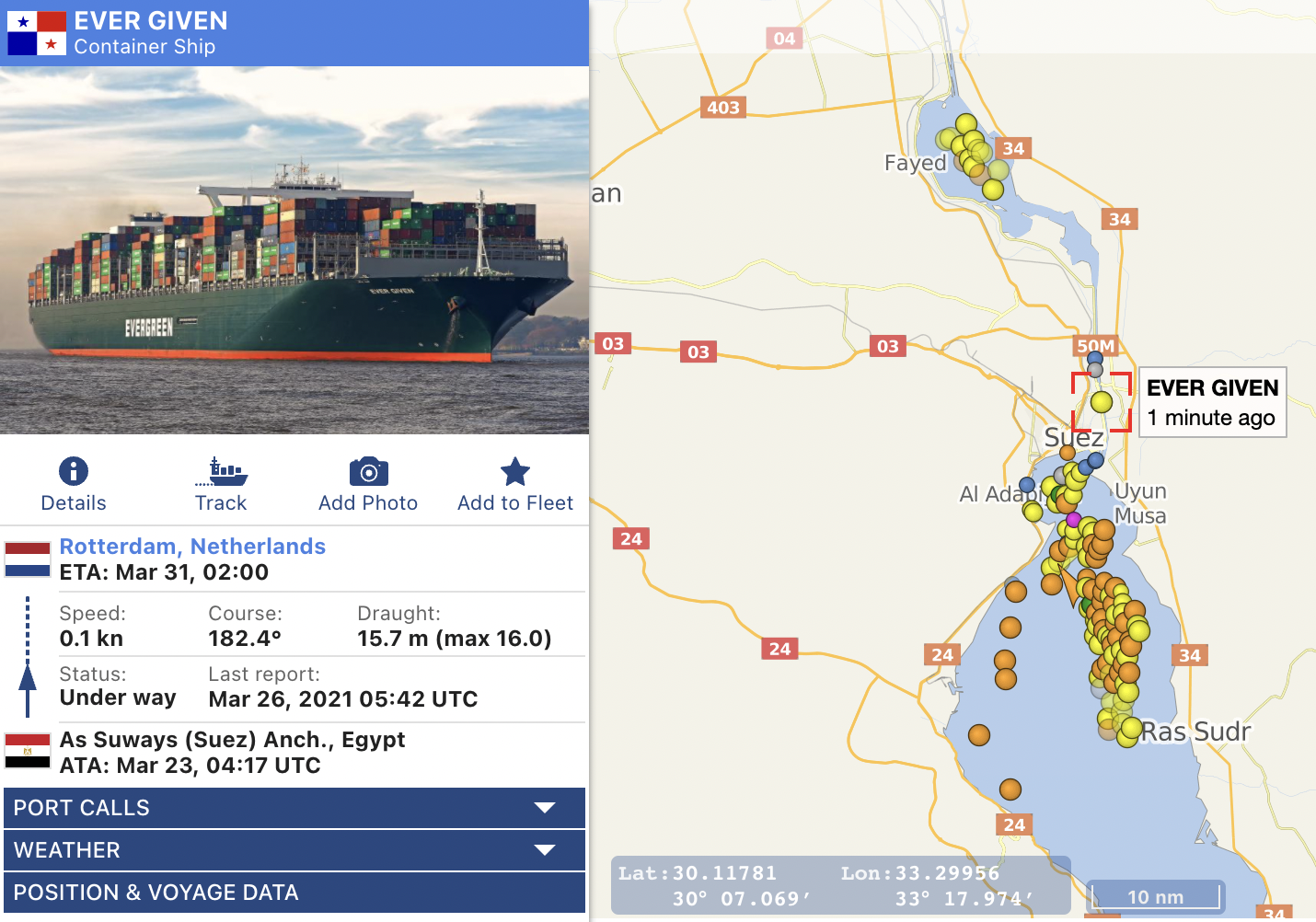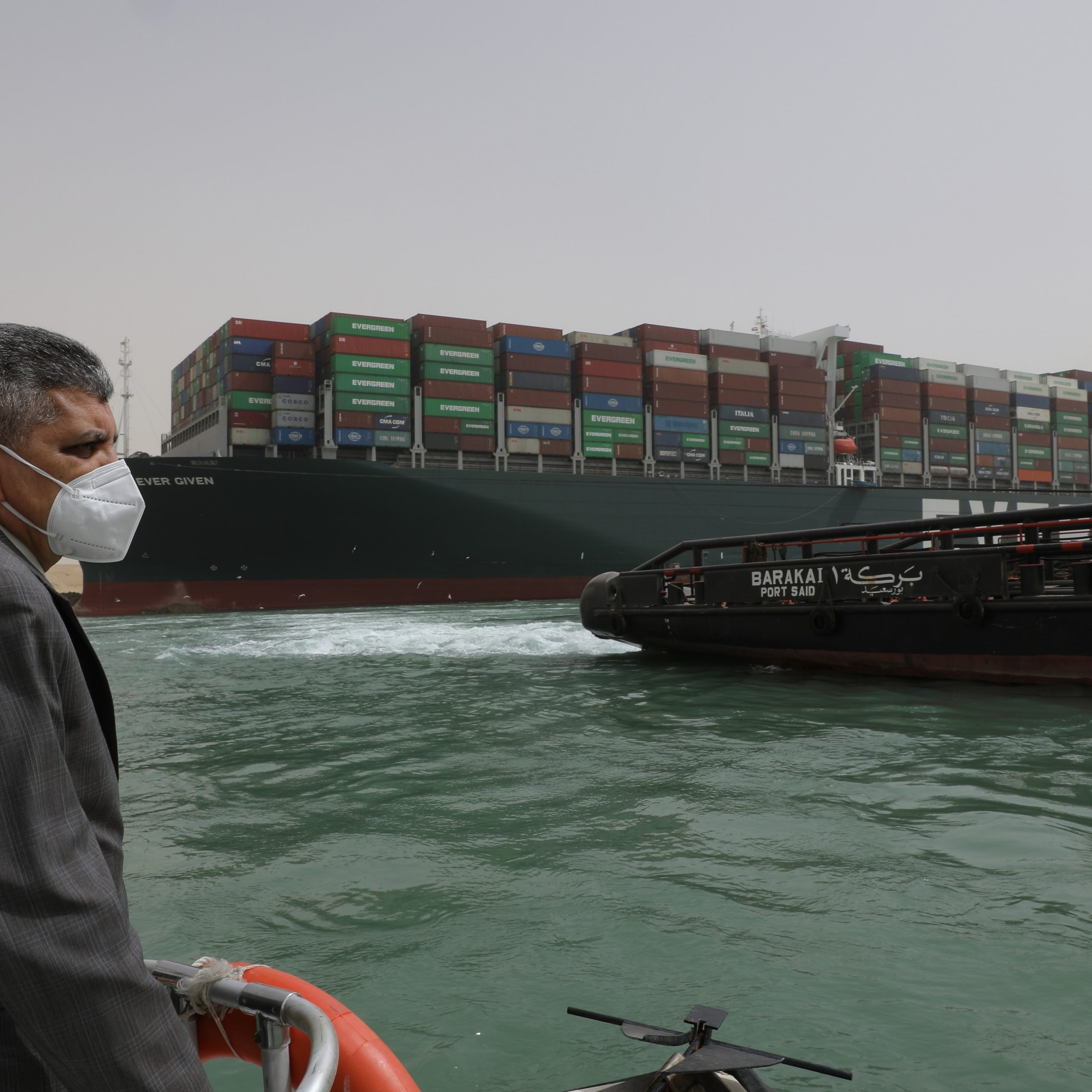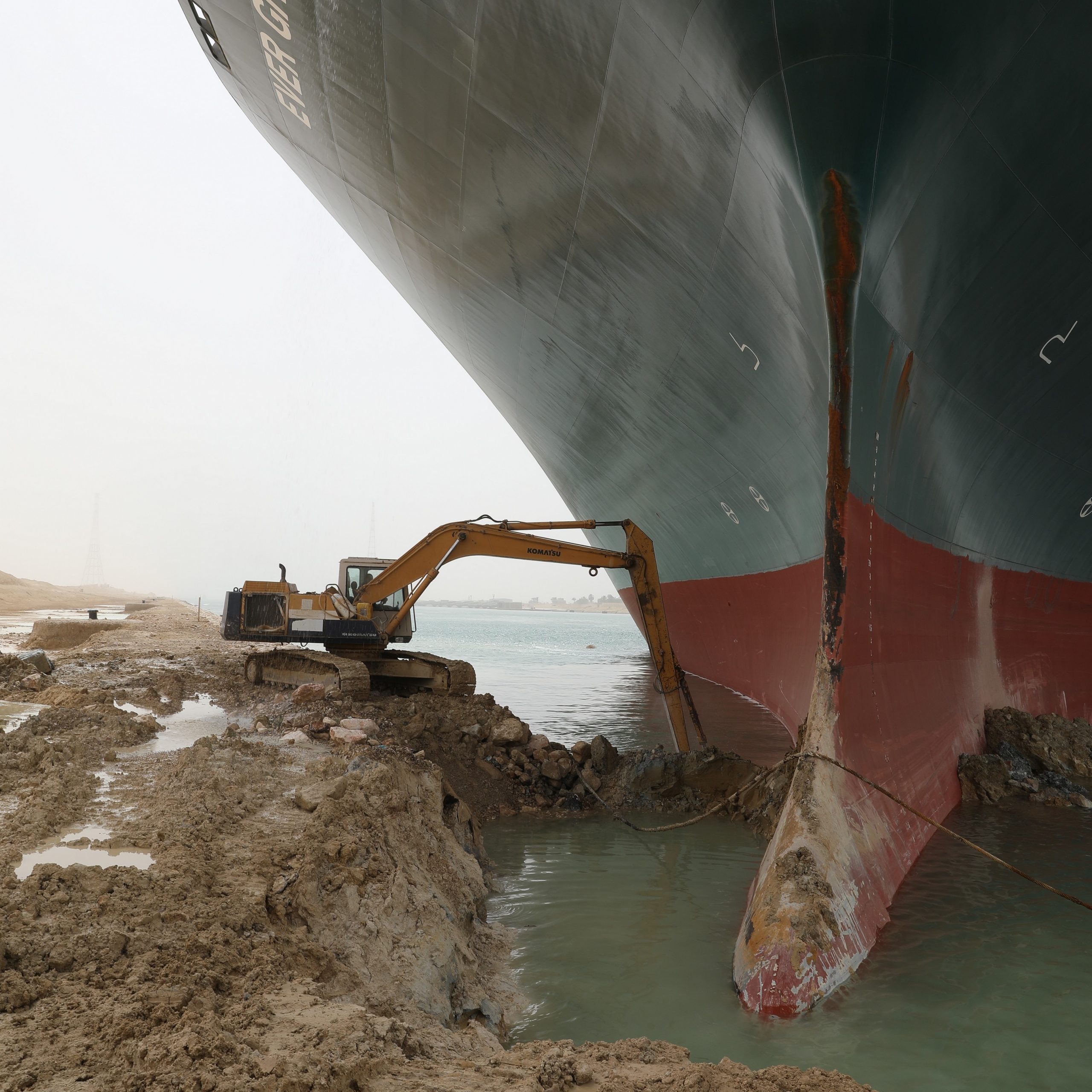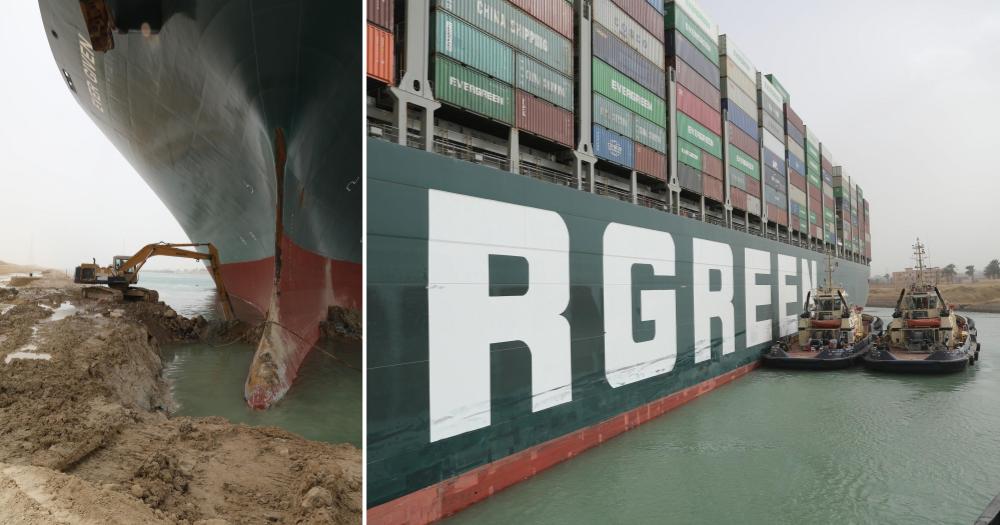Most Singaporeans are aware of what happens when there is a congestion on the Central Expressway (CTE).
But Singaporeans familiar with the Suez Canal and its importance in global shipping routes are likely far fewer.
Global trade through the man-made 193km waterway has been somewhat impaired by what transport minster Ong Ye Kung described as an "unfortunate incident" — the stranding of a 400m-long container ship in one of the world's busiest waterways.
In a Facebook post on Mar. 25, Ong explained the impact of the situation in the Suez Canal on global trade, and how it would in turn affect Singapore by comparing it to a temporary blockage of the CTE.
What is happening in the Suez Canal?
A massive container ship, named the Ever Given, has run aground in the Suez Canal.
The suspected cause of the grounding is "gusting winds of 30 knots" on the morning of Mar. 23, which caused the container ship to deviate from its course, explained Evergreen Marine Corp., which currently leases the Ever Given, in a Situation Report on its website.
Initial efforts to get the ship back on course were unsuccessful, leading the Suez Canal Authority to announce on Mar. 25 that navigation through the waterway would be "temporarily suspended" while the authority worked to get the vessel floating again.
In the meantime, other vessels that were expecting to transit through the canal have had to put down their anchors in the Bitter Lakes, saltwater lakes that make up part of the Suez Canal.
On vesselfinder.com, a vessel tracking website, dozens of ships can be seen, both to the North and South of where the Ever Given is stuck.
 Screenshot via vesselfinder.com
Screenshot via vesselfinder.com
The Ever Given, according to BBC, was headed from China to Rotterdam in the Netherlands, sailing northwards through the Suez to the Mediterranean sea.
Shoei Kisen Kaisha, the Japanese owner of the Ever Given, has issued an apology on its website, stating:
"We sincerely apologize for causing a great deal of concern to the vessels scheduled to sail and their related parties while navigating the Suez Canal due to the accident of this vessel."
What can be done to free the stranded container ship?
Efforts to get the ship floating again include towing and pushing the stranded Ever Given using powerful tugboats, said the Suez Canal Authority.
 The BARAKA 1 is the largest of eight tugboats being used to get the stranded Ever Given afloat again. Photo via Suez Canal Authority's website.
The BARAKA 1 is the largest of eight tugboats being used to get the stranded Ever Given afloat again. Photo via Suez Canal Authority's website.
Besides towing and pushing the ship back on course, work is taking place on the shore of the Canal's right bank where diggers are removing sand and mud from around the ship's hull, BBC reported.
 Photo via Suez Canal Authority's website.
Photo via Suez Canal Authority's website.
Besides digging and tugging, it may be necessary to lighten the vessel.
This could be done by removing fuel, or even some of the nearly 20,000 cargo containers on board.
Lightening the vessel could lead to some unwanted side effects, however, with an expert telling BBC that the worst case scenario is that the Ever Given could break in half due to uneven weight distribution.
Another challenge involved in lightening the ship is the fact that the operation would need to involve large floating cranes.
Blockage of the Suez Canal will have far-reaching impact
"To have the Suez blocked is akin to a big tree falling across the CTE. Every other expressway linked to the CTE will be affected," wrote Ong.
Around 10 per cent of global seaborne trade passes through the Suez Canal, said Ong, who put the figure in perspective by adding that the Straits of Malacca, closer to home, provided passage for a third of global seaborne trade.
"Supplies to the region may be temporarily disrupted," said Ong, explaining that it may be necessary to draw down on inventories in response.
Ships will take additional one to two weeks to sail around Africa
Prior to the construction of the Suez Canal, ships sailing between Europe and Asia had to sail along the coast of the African continent, a route which Ong said would take one to two weeks longer than going through the Suez.
With the current blockage, ships might need to fall back on that route.
Ong also explained that Singapore's ports could see schedule disruptions, if the resolution of the situation in the Suez Canal is delayed, causing shipping lines to reroute their journeys.
PSA Singapore, Singapore's terminal operator, will have to plan ahead to ensure smooth operations, Ong said.
"This is another unfortunate incident that illustrates how the world is now so closely interwoven together," said Ong.
You can see the full post here:
Related story:
Top image via Suez Canal Authority's website
If you like what you read, follow us on Facebook, Instagram, Twitter and Telegram to get the latest updates.
